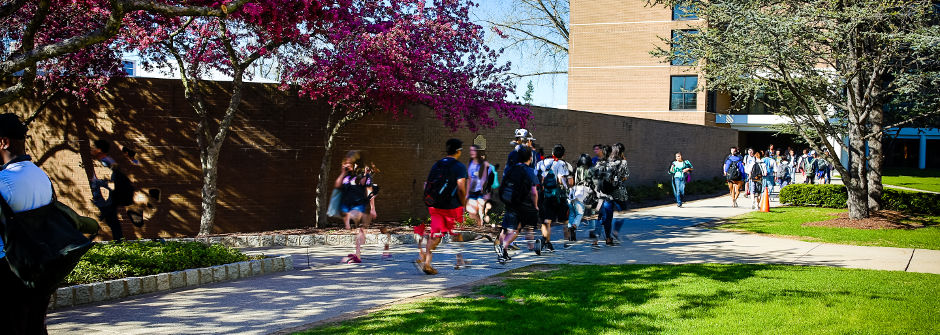
FAQs
1. Does the University have jurisdiction over off-campus incidents?
Seton Hall University has jurisdiction over student conduct that occurs on University
property, or involving SHU students or in connection with official University functions
(i.e. – basketball games at the Prudential Center) whether on or off University property.
The University reserves the right to adjudicate students for off-campus violations
that would normally be considered violations of the Student Code of Conduct had they
occurred on-campus.
2. I have received a "Request to Meet" letter. What does this mean?
This means that the Office of Community Standards has received an incident report,
alleging that you have violated the Student Code of Conduct. The initial conference is your opportunity to meet with a student conduct officer
to discuss the complaint.
3. Do I have to go to the Initial Conference meeting?
It is certainly in your best interest to be present at the Initial Conference. This
is your opportunity to hear the incident report against you and offer your side of
the story, if you choose. You are not obligated to speak at the preliminary review.
Ignoring the request will NOT make the problem go away. If you do not attend the preliminary
review, the disciplinary process will continue with or without your input.
4. What is a Community Standards Review Board Hearing?
A Community Standards Review Board Hearing is a review of an open community standards
case where the evidence and all things related are reviewed. The process is conducted
by a panel of two students and one faculty/staff member. A step-by-step explanation
of the University Hearing process is available in the Student Code of Conduct. If it is believed that a student has participated in the violation of a Community
Standard and he or she does not accept responsibility for violating the Community
Standard, the matter will be referred to the Community Standards Review Board.
5. What if I am found responsible?
A sanction will be imposed. A list of possible sanctions is available in the Student Code of Conduct.
6. Can I appeal a sanction if I am found to be responsible?
Yes, in your final sanction letter, there will be details about your appeal options.
The appeal must meet one of the criteria listed below to be considered;
- The severity of the sanction is disproportionate to the violation committed.
- There was a significant procedural error before the Community Standards Review Board or applicable Student Conduct Administrator, citing specific examples.
- To consider new information sufficient to alter a decision not brought out in the original hearing because such information and/or facts were not reasonably available at the time of the hearing.
*Information about the appeals process can be found here.
7. Will my parents find out?
In the case of a student who is under the age of 21 and has violated the Student Code
of Conduct as it related to alcohol, a letter will be sent to the student's parents
only stating that there was a violation of the University Alcohol and or Drug policy,
as a part of the educational conversation. This is also true for the violation of
the Student Code of Conduct as it relates to Drugs.
8. How does your office know when and who violates the Student Code of Conduct?
The Office of Community Standards receives various incident reports from different
sources, e.g., Seton Hall University Public Safety and Security, Office of Housing
and Residential Life, South Orange Police Department, faculty or administrative offices,
and other students.
9. Does a student who has been charged with a violation need an attorney?
Any student (Accused, Complainant, Witness) who appears at a disciplinary hearing/meeting
may have an adviser accompany him/her. The adviser may provide advice but will not
be permitted to speak on your behalf, ask questions or present information at the
hearing. (Having an attorney serve as an adviser does not change the role of the
adviser.)
10. If I was unaware of the Student Code of Conduct, will I still be held accountable?
Every student is responsible for knowing what the Student Code of Conduct is. This
is why it is important to ask questions if you are unsure of the standards that apply.
Ignorance to the Student Code of Conduct will no not serve as an excuse.
11. What is the "standard of proof" in the student conduct process?
Decisions with respect to student responsibility for alleged violations of the Student
Code of Conduct are made based on a preponderance of the evidence; that is, the hearing
panel or administrator will determine what is "more likely than not" to have taken
place.

